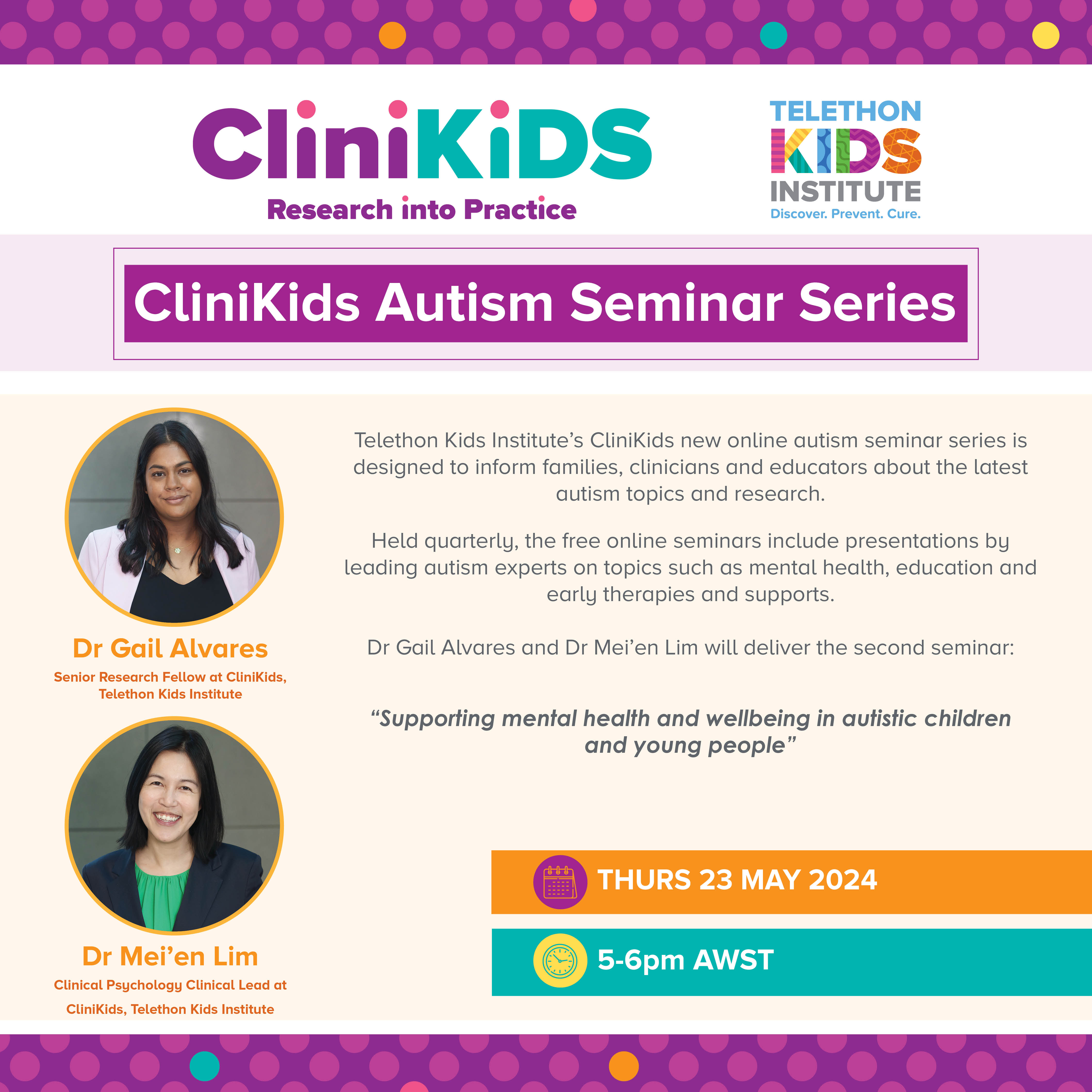Search

News & Events
Mental health seminarHere you will find follow up information from our autism seminar on mental health and autism.

News & Events
Mental health seminarHere you will find follow up information from our autism seminar on mental health and autism.